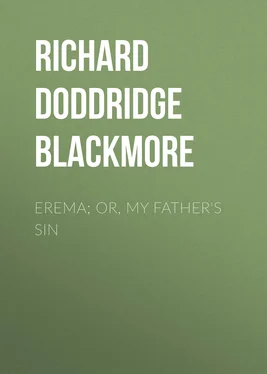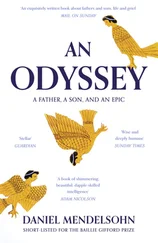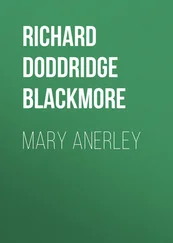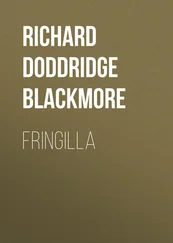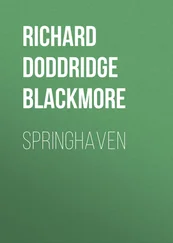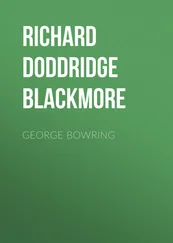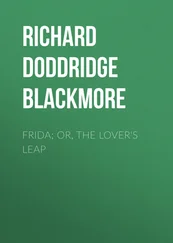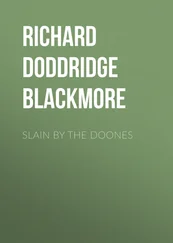Richard Doddridge Blackmore - Erema; Or, My Father's Sin
Здесь есть возможность читать онлайн «Richard Doddridge Blackmore - Erema; Or, My Father's Sin» — ознакомительный отрывок электронной книги совершенно бесплатно, а после прочтения отрывка купить полную версию. В некоторых случаях можно слушать аудио, скачать через торрент в формате fb2 и присутствует краткое содержание. Издательство: Иностранный паблик, Жанр: foreign_prose, literature_19, foreign_antique, на английском языке. Описание произведения, (предисловие) а так же отзывы посетителей доступны на портале библиотеки ЛибКат.
- Название:Erema; Or, My Father's Sin
- Автор:
- Издательство:Иностранный паблик
- Жанр:
- Год:неизвестен
- ISBN:нет данных
- Рейтинг книги:3 / 5. Голосов: 1
-
Избранное:Добавить в избранное
- Отзывы:
-
Ваша оценка:
- 60
- 1
- 2
- 3
- 4
- 5
Erema; Or, My Father's Sin: краткое содержание, описание и аннотация
Предлагаем к чтению аннотацию, описание, краткое содержание или предисловие (зависит от того, что написал сам автор книги «Erema; Or, My Father's Sin»). Если вы не нашли необходимую информацию о книге — напишите в комментариях, мы постараемся отыскать её.
Erema; Or, My Father's Sin — читать онлайн ознакомительный отрывок
Ниже представлен текст книги, разбитый по страницам. Система сохранения места последней прочитанной страницы, позволяет с удобством читать онлайн бесплатно книгу «Erema; Or, My Father's Sin», без необходимости каждый раз заново искать на чём Вы остановились. Поставьте закладку, и сможете в любой момент перейти на страницу, на которой закончили чтение.
Интервал:
Закладка:
Walking quite as in a dream this time (which I had vainly striven to do when seeking for my nugget), I came to the bank of the gleaming river, and saw the water just in time to stop from stepping into it. Careless about this and every other thing for the moment, I threw myself on the sod, and listened to the mournful melody of night. Sundry unknown creatures, which by day keep timid silence, were sending timid sounds into the darkness, holding quiet converse with themselves, or it, or one another. And the silvery murmur of the wavelets soothed the twinkling sleep of leaves.
I also, being worn and weary, and having a frock which improved with washing, and was spoiled already by nursing Firm, was well content to throw myself into a niche of river-bank and let all things flow past me. But before any thing had found time to flow far, or the lullaby of night had lulled me, there came to me a sadder sound than plaintive Nature can produce without her Master’s aid, the saddest sound in all creation—a strong man’s wail.
Child as I was—and, perhaps, all the more for that reason as knowing so little of mankind—I might have been more frightened, but I could not have been a bit more shocked, by the roaring of a lion. For I knew in a moment whose voice it was, and that made it pierce me tenfold. It was Uncle Sam, lamenting to himself, and to his God alone, the loss of his last hope on earth. He could not dream that any other than his Maker (and his Maker’s works, if ever they have any sympathy) listened to the wild outpourings of an aged but still very natural heart, which had always been proud of controlling itself. I could see his great frame through a willow-tree, with the sere grass and withered reeds around, and the faint gleam of fugitive water beyond. He was kneeling toward his shattered mill, having rolled his shirt sleeves back to pray, and his white locks shone in the starlight; then, after trying several times, he managed to pray a little. First (perhaps partly from habit), he said the prayer of Our Lord pretty firmly, and then he went on to his own special case, with a doubting whether he should mention it. But as he went on he gathered courage, or received it from above, and was able to say what he wanted.
“Almighty Father of the living and the dead, I have lived long, and shall soon be dead, and my days have been full of trouble. But I never had such trouble as this here before, and I don’t think I ever shall get over it. I have sinned every day of my life, and not thought of Thee, but of victuals, and money, and stuff; and nobody knows, but myself and Thou, all the little bad things inside of me. I cared a deal more to be respectable and get on with my business than to be prepared for kingdom come. And I have just been proud about the shooting of a villain, who might ‘a gone free and repented. There is nobody left to me in my old age. Thou hast taken all of them. Wife, and son, and mill, and grandson, and my brother who robbed me—the whole of it may have been for my good, but I have got no good out of it. Show me the way for a little time, O Lord, to make the best of it; and teach me to bear it like a man, and not break down at this time of life. Thou knowest what is right. Please to do it. Amen.”
CHAPTER XIV
NOT FAR TO SEEK
In the present state of controversies most profoundly religious, the Lord alone can decide (though thousands of men would hurry to pronounce) for or against the orthodoxy of the ancient Sawyer’s prayer. But if sound doctrine can be established by success (as it always is), Uncle Sam’s theology must have been unusually sound; for it pleased a gracious Power to know what he wanted, and to grant it.
Brave as Mr. Gundry was, and much-enduring and resigned, the latter years of his life on earth must have dragged on very heavily, with abstract resignation only, and none of his blood to care for him. Being so obstinate a man, he might have never admitted this, but proved against every one’s voice, except his own, his special blessedness. But this must have been a trial to him, and happily he was spared from it.
For although Firm had been very badly shot, and kept us for weeks in anxiety about him, his strong young constitution and well-nourished frame got over it. A truly good and learned doctor came from Sacramento, and we hung upon his words, and found that there he left us hanging. And this was the wisest thing perhaps that he could do, because in America medical men are not absurdly expected, as they are in England, to do any good, but are valued chiefly upon their power of predicting what they can not help. And this man of science perceived that he might do harm to himself and his family by predicting amiss, whereas he could do no good to his patient by predicting rightly. And so he foretold both good and evil, to meet the intentions of Providence.
He had not been sent for in vain, however; and to give him his due, he saved Ephraim’s life, for he drew from the wound a large bullet, which, if left, must have poisoned all his circulation, although it was made of pure silver. The Sawyer wished to keep this silver bullet as a token, but the doctor said that it belonged to him according to miners’ law; and so it came to a moderate argument. Each was a thoroughly stubborn man, according to the bent of all good men, and reasoning increased their unreason. But the doctor won—as indeed he deserved, for the extraction had been delicate—because, when reason had been exhausted, he just said this:
“Colonel Gundry, let us have no more words. The true owner is your grandson. I will put it back where I took it from.”
Upon this, the Sawyer being tickled, as men very often are in sad moments, took the doctor by the hand, and gave him the bullet heartily. And the medical man had a loop made to it, and wore it upon his watch chain. And he told the story so often (saying that another man perhaps might have got it out, but no other man could have kept it), that among a great race who judge by facts it doubled his practice immediately.
The leader of the robbers, known far and wide as “Captain Pedro,” was buried where he fell; and the whole so raised Uncle Sam’s reputation that his house was never attacked again; and if any bad characters were forced by circumstances to come near him, they never asked for any thing stronger than ginger-beer or lemonade, and departed very promptly. For as soon as Ephraim Gundry could give account of his disaster, it was clear that Don Pedro owed his fate to a bottle of the Sawyer’s whiskey. Firm had only intended to give him a lesson for misbehavior, being fired by his grandfather’s words about swinging me on the saddle. This idea had justly appeared to him to demand a protest; to deliver which he at once set forth with a valuable cowhide whip. Coming thus to the Rovers’ camp, and finding their captain sitting in the shade to digest his dinner, Firm laid hold of him by the neck, and gave way to feelings of severity. Don Pedro regretted his misconduct, and being lifted up for the moment above his ordinary view, perceived that he might have done better, and shaped the pattern of his tongue to it. Firm, hearing this, had good hopes of him; yet knowing how volatile repentance is, he strove to form a well-marked track for it. And when the captain ceased to receive cowhide, he must have had it long enough to miss it.
Now this might have ended honorably and amicably for all concerned, if the captain had known when he was well off. Unluckily he had purloined a bottle of Mr. Gundry’s whiskey, and he drew the cork now to rub his stripes, and the smell of it moved him to try it inside. And before very long his ideas of honor, which he had sense enough to drop when sober, began to come into his eyes again, and to stir him up to mischief. Hence it was that he followed Firm, who was riding home well satisfied, and appeased his honor by shooting in cold blood, and justice by being shot anyhow.
Читать дальшеИнтервал:
Закладка:
Похожие книги на «Erema; Or, My Father's Sin»
Представляем Вашему вниманию похожие книги на «Erema; Or, My Father's Sin» списком для выбора. Мы отобрали схожую по названию и смыслу литературу в надежде предоставить читателям больше вариантов отыскать новые, интересные, ещё непрочитанные произведения.
Обсуждение, отзывы о книге «Erema; Or, My Father's Sin» и просто собственные мнения читателей. Оставьте ваши комментарии, напишите, что Вы думаете о произведении, его смысле или главных героях. Укажите что конкретно понравилось, а что нет, и почему Вы так считаете.
